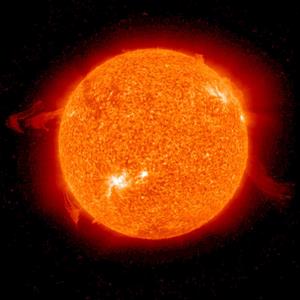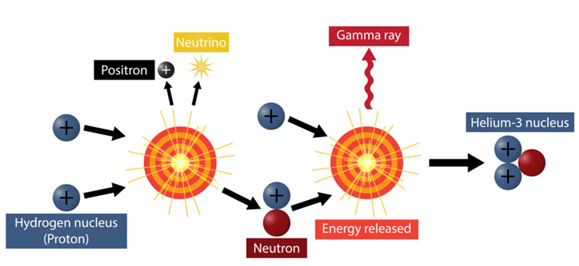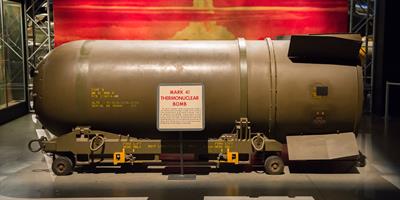PDF chapter test TRY NOW
Our Sun, like other stars, emits some amount of energy in the form of light and heat. This energy is known as Stellar energy.

Sun
The main source of stellar energy is hydrogen, which is abundant in stars. The surface temperatures of stars are extremely high, causing the fusion of hydrogen nuclei.
Fusion reaction that takes place in the cores of the Sun and other stars results in an enormous amount of energy called Stellar energy.
The Sun and other stars get their light and heat energy from nuclear fusion, also known as a Thermonuclear reaction.
The Sun and other stars get their light and heat energy from nuclear fusion, also known as a Thermonuclear reaction.

Nuclear fusion reaction in the Sun
Sun emits roughly 3.8 \times{10^{26}}\ joule of energy per second and fuses about 620\ million\ metric\ tonnes of hydrogen per second. The intensity of emitted energy reduces as it reaches the Earth. The calculated value of this energy is 1.4\ kilo\ joule per unit area in unit time.
Hydrogen bomb:
The hydrogen bomb works on the principle of nuclear fusion. A hydrogen bomb contains an inbuilt atom bomb for an explosion since it provides the high temperature and pressure required for fusion. Thus, the hydrogen bomb is a fission-fusion bomb.
Hydrogen bomb
The hydrogen core then undergoes fusion, resulting in the release of a massive amount of energy in an uncontrollable manner. The energy released by a hydrogen bomb or fusion bomb is much greater than an atom bomb or fission bomb.
Reference:
https://live.staticflickr.com/5484/11379007703_e90929a93a_b.jpg
